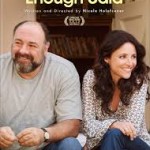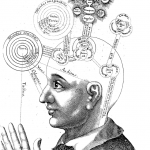Here is a link to my newest essay over at The Rumpus:
Stain
Driving Me Crazy
On Saturday my son will make his first long-distance road trip alone, driving home to Virginia from college in Connecticut. When I was his age (20) I really didn’t drive at all. I had a license but not a car, and I lived in Manhattan. The first time I did a long-distance solo drive, like the one he is about to do, was . . . well, let me think . . . it must have been back in . . . a few months ago.
So maybe it’s not surprising that I have some trepidation. I’m not afraid of flying. Statistically, it’s much more likely that a car will crash than a plane. I’m not afraid of driving, either. But I’d rather do just about anything else, if I had a choice (though I don’t, so I drive every day). Perhaps my less-than-ardent relationship with cars has something to do with the fact that my father died in a crash when I was little. Or maybe not.
Part of me wants to tell my son to take a plane or train. Part of me curses his decision to attend an out-of-state school. Though luckily, the other parts—the saner parts—always win.
Worrying doesn’t make anyone safer, so I’ll try not to think about my son’s post-final-exam trek from north to south. It should be easy to focus on other things. After all, I’ll be at a funeral.
The deceased was in his sixties. He wasn’t in a car or a plane. He wasn’t a soldier or police officer or a sky-diving stuntman. He was an economics professor who sat down to breakfast the morning after Thanksgiving and had a heart attack, out of the blue.
What’s the lesson here? It’s not that we should avoid eating breakfast. Or driving cars. Or taking planes. Maybe it’s that every day we can’t be sure it’s not our last. Every day is like Thanksgiving. So I’ll give thanks right now. Or at least when I see that silver Corolla pull up in the driveway.
Maybe It Happened This Way
Somewhere, almost lost in the thousands of words I’ve read this week about the misrepresentations in the The Rolling Stone article that recounted a horrific gang rape of a girl named Jackie at a University of Virginia frat house, were these three sentences: “It’s not about what Jackie remembered, it’s about what actually happened. This wasn’t a how-I-coped-with-trauma memoir. This was supposed to be innocent-until-proven-guilty investigative journalism.”
But the truth is, memory is a slippery thing, especially memories of traumatic experiences. If some of the details got confused, we can’t assume it’s because Jackie lied. The mind is more complicated than that. She may have simply misremembered. It was the reporter’s job to know this could happen and to fact-check.
I’ve been stunned multiple times during the research I’ve done for my memoir—whether in formal interviews or casual conversations—how often I remembered things the wrong way. Or not at all.
Here’s a small example. When my mother was visiting me about a year ago, a six-year-old girl was hit by a truck half a mile from our house and immediately killed. “Remember when your sister was hit by a car?” my mother said. It was a rhetorical question. She assumed I remembered—but I didn’t.
“No.”
“She was fourteen,” my mother continued, “walking to school in the morning. The driver hadn’t even scraped the ice off her windshield, so she couldn’t see a thing and dragged your sister under the car.”
What does it say about me that I forgot such a horrible event? Am I the only person with memory holes like this? I don’t think so.
I said, “All I remember is my brother getting hit by a car in elementary school. He’d been riding his bike in the playground at Keppen School, where I was playing. He rode into the street by accident. An ambulance came, and you went to the hospital with them and sent me home with Kimmie’s family.”
“I never would have sent you home with Kimmie’s family,” my mother said. “Kimmie was a bully.”
Had I made this memory up? Not just the memory of staying at Kimmie’s, but of the whole accident. My mother didn’t remember it.
“Maybe this happened. Maybe not.” Sometimes it feels like that is the only way to truthfully reconstruct memories. One of the best examples of a memoir that wears the pitfalls of memory on its sleeve is The Other Side. In his blurb, Nick Flynn says, “Lacy M. Johnson offers us a guide to the impossible—how to reconstruct a past when the past itself is shattered, each memory broken into pieces, left rattling around inside us.”
In the first paragraph, she reconstructs the scene of her escape from the basement where her ex-boyfriend locked her up, raped her, and tried to kill her. It begins:
“I crash through the screen door, arms flailing like two loose propellers, stumbling like a woman on fire: hair and clothes ablaze. Or I do not stumble. I make no noise at all as I open the door with one hand, holding a two-by-four above my head with the other. My feet and legs carry me forward, the rest of my body still, like a statue. Like a ninja. A cartoon” (p. 1).
From a craft point of view, I’m startled by the transparency of a mind at work on the page, the sense that we are seeing the thoughts in progress, hearing the author weigh the options, telling us: “I do this . . . or I do that. . . I’m not exactly sure.”
Later in the book, she backtracks to the scene in which she introduced this man to her parents:
“Maybe it’s Mom who comes right out and says she is frankly shocked at how old he is: thirty eight, exactly twice my age. Or maybe she first asks if he colors his hair Then Dad wants to know if he has accepted Jesus Christ as his Lord and Savior. I cover my face a little and sink deeper into the couch. The Man I Live With answers honestly; he’s told me in the car he will not placate these people. He delivers a moving lecture on world religions, including an in-depth deconstruction of the savior myth. Or it is not a lecture. Maybe he just waves his hands while telling my father his beliefs are the beliefs of a small-minded man” (p. 44).
Notice the word she repeats over and over again: maybe.
She backtracks further and not only questions the details of her memories but actively tries to change them. Don’t we all wish, sometimes, that we could?
“We ride the train to Budapest, where we share a room at the hostel with three Australian rugby players who take turns touching my breasts. I can’t remember their names. Does one have a mole on his cheek? The Man I Live With holds up my shirt for them, pinning back my arms,.He laughs without smiling, his mouth wide open.
“Or maybe he is waiting in the hall for the bathroom. Maybe he is drawing me a bath. I want to remember being drunk. I want to be standing on the bed, holding my own shirt up, my own arms back. I want to remember that I begged them to touch me. Not how they finally turned away” (p. 88).
“I want to remember” is code for “I wish it happened this way,” but it’s also stronger than that. It’s a yearning, not just a wish, a desire that can become so strong it’s transformative. We can’t change the past, but sometimes (without knowing it) we change the way we remember it.
Maybe Jackie did, too.
Photo credit: http://www.scientificamerican.com/media/inline/the-power-of-the-memory-molecule_1.jpg
Enough Said? Maybe not.
People always talk to me on the plane, except last night. I sat in the middle and ate the roast beef sandwich I’d stuffed into my messenger bag. Then I leaned back, closed my eyes, and imagined no one could see me. Finally, soundless and still, I let the tears fall.
I don’t usually cry in public. It’s one of our last taboos. You can appear to strangers in your underwear, but letting them see you cry feels dangerously intimate. So the two women on either side of me didn’t ask where I was going or where I’d been, as my seatmates usually do. The twenty-something on my left kept typing up revised guidelines for new hires, and the sixty-something on my right paged through her paperback.
I cry every time I drop my son off at college. Normally I hold everything together until no one can see me. This time I was too rushed to dash into the public restroom and lock myself in a stall, where I could let my face redden, then powder the blotches away.
On this trip, I was helping my son move into a new college as a transfer student, far from home. I was leaving him the car, and I hoped he would drive safely. I hoped he would make good friends this time and be happy. I hoped he would be better at keeping in touch with me than I had been with my own mother. I didn’t want to burden him with my hopes and worries. But maybe I was wrong.
A few months ago, my son and I watched a DVD of the clever, quirky romantic comedy “Enough Said.” Julie Louis Dreyfeus plays a single mom whose daughter is about to move away to college. Through the whole movie, the mom complains about how her life will end once her baby abandons her. It will be the worst day of her life. She might have to lock her daughter’s room and never let her go.
At the end of the movie, my son paced and grimaced. “You didn’t like it?” I asked.
“I did,” he said. “It’s just. . .”
“Just what?”
“It’s just . . . how come you weren’t upset when I left for college?”
“I was.”
“You didn’t cry.”
“I did,” I said. “In the bathroom. In the car once I dropped you off. But I wanted you to think I was strong. I didn’t want you to see me fall apart.”
“Why?”
Good question. Maybe next time I won’t wait till I get on the plane. I’ll tell him how I feel as he weaves through 70-miles-an-hour traffic on the way to the airport. I’ll think of this passage from John Updike’s story, “My Father’s Tears,” and try to be more eloquent:
“Come to think of it, I saw my father cry only once. It was at the Alton train station, back when the trains still ran. I was on my way to Philadelphia to catch the train that would return me to Boston and college. I was eager to go, for already my home and my parents had become somewhat unreal to me, and college, with its courses and the hopes for my future they inspired and the girlfriend I had acquired in my sophomore year, had become more real every semester; it shocked me—threw me off track, as it were—to see that my father’s eyes, as he shook my hand goodbye, glittered with tears.
“I blamed it on our shaking hands: for eighteen years, we had never had occasion for this ritual, this manly contact, and we had groped our way into it only in the past few years. He was taller than I, though I was not short, and I realized, his hand warm in mine while he tried to smile, that he had a different perspective than I. I was going somewhere, and he was seeing me go. I was growing in my own sense of myself, and to him I was getting smaller. He had loved me, it came to me as never before. It was something that had not needed to be said before, and now his tears were saying it.”
It’s Good To Be . . .
In Paul Auster’s latest memoir, Department of the Interior, he says,
“There is nothing better than being six years old, six is far and away the best age anyone can be. You remember thinking this as clearly as you remember what you did three seconds ago. . . What had happened to cause such an overpowering feeling? Impossible to know, but you suspect it had something to do with the birth of self-consciousness, that thing that happens to children at around the age of six, when the inner voice awakes and the ability to think a thought and tell yourself you are thinking that thought begins. . . You could think about being alive, and once you could do that, you could . . . tell yourself how good it was to be alive.”
I remember being five years old and telling myself that I was always going to remember what it felt like to be five years old. I tried to fix that year in permanent marker in my brain, afraid even then, of losing myself. “Five will always be my favorite number,” I said. “I didn’t just pick it because I’m five years old.”
A few years later, I promised not to forget what it felt like to be a child. What I meant, at age eight or nine, was that I didn’t want to lose sight, once I grew up, of how powerless it felt to be a child. How much all your decisions are made for you. How little control you have. Does the fact that I’m writing this mean I’ve remembered? I’m not sure.
Then there are moments, like Paul Auster’s, when I told myself I was glad to be alive. The moment I learned I got a scholarship to go to college in New York City. Me? Really? The moment I realized James was going to marry me. It’s true. He did! I remember those moments as well as I remember my name. Times when I was so lucky I kept looking behind my shoulder, afraid someone would leap up and say, Oops! Wrong person. We didn’t mean you.
And here I am, realizing that all it takes to have one of those “I’m lucky to be alive” moments is self-consciousness. All I need to do is pay attention.
I am traveling to Paris with my family. I am eating a pain au lait at the table while gazing out at the rain. I am typing a blog post about the ecstasy of it all. I am thinking, then taking stock of my thinking. Maybe I’ll still recall this moment decades from now. I’ll remember trying to remember: There is nothing better than this.
- « Previous Page
- 1
- …
- 4
- 5
- 6
- 7
- 8
- …
- 29
- Next Page »




